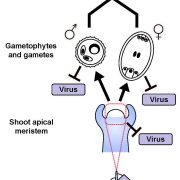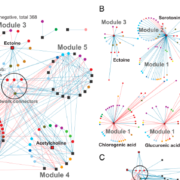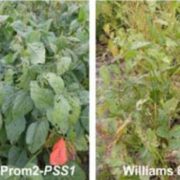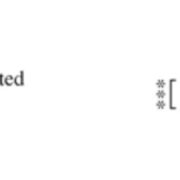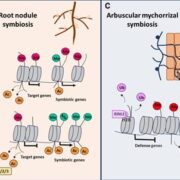Plant extracellular vesicles are incorporated by a fungal pathogen and inhibit its growth ($)
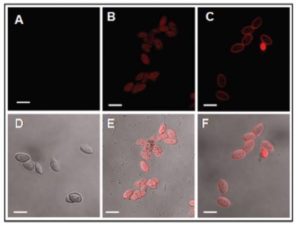 Extracellular vesicles (EVs) are membrane-released structures that play a role in cell-to-cell communication. These vesicles in plants have been poorly studied although they are predicted to have a role in defense upon pathogen infection. Regente et al. have characterized EVs from sunflower by transmission electron microscopy and proteomic analysis. As expected, the vesicles are enriched in defense proteins. They also inhibit the ability of a broad-range fungal pathogen, Sclerotinia sclerotiorum, to form infectious hyphae, and they arrests fungal growth and lead to fungal cell death. Membrane staining demonstrates that EVs are taken up by S. sclerotiorum ascospores. Hence this work demonstrates an important ability of plant EVs to interact and arrest fungal pathogens thereby blocking pathogen invasion. (Summary by Amey Redkar) J. Exp. Bot. 10.1093/jxb/erx355
Extracellular vesicles (EVs) are membrane-released structures that play a role in cell-to-cell communication. These vesicles in plants have been poorly studied although they are predicted to have a role in defense upon pathogen infection. Regente et al. have characterized EVs from sunflower by transmission electron microscopy and proteomic analysis. As expected, the vesicles are enriched in defense proteins. They also inhibit the ability of a broad-range fungal pathogen, Sclerotinia sclerotiorum, to form infectious hyphae, and they arrests fungal growth and lead to fungal cell death. Membrane staining demonstrates that EVs are taken up by S. sclerotiorum ascospores. Hence this work demonstrates an important ability of plant EVs to interact and arrest fungal pathogens thereby blocking pathogen invasion. (Summary by Amey Redkar) J. Exp. Bot. 10.1093/jxb/erx355


